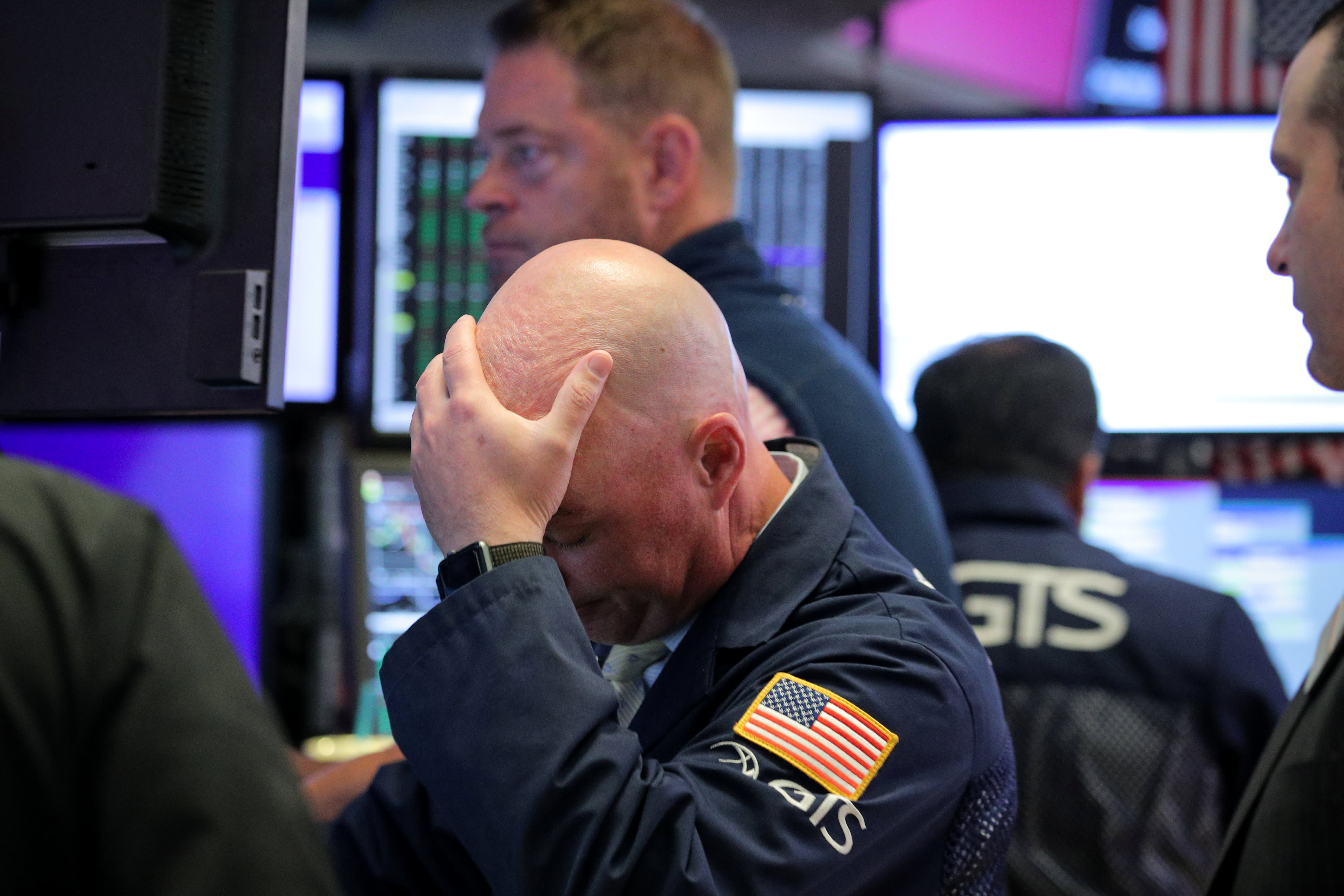A 'sharp correction' is brewing for the next 18 months, strategist says

Global recession risks are on the rise and we could see a "really sharp correction" within the next 18 months, according to Ian Harnett, chief investment strategist at Absolute Strategy Research.
Speaking to CNBC's "Squawk Box Europe" Thursday, Harnett suggested that the U.S. Federal Reserve is worried that economic growth will slow and unemployment will rise, leading the central back toward "insurance cuts" to its benchmark rate in the near future.
"We don't think insurance cuts will be enough, we actually think earnings growth is not going to be 7% this year, it's going to be -5%, and maybe even -10," Harnett said.
He suggested that price-to-earnings (P/E) ratios, an important metric used by traders to gauge the value of stocks, pointed toward a substantial downturn.
"You've got the Shiller P/E (ratio) back over 30 times, last seen in the tech bubble, last seen just prior to the 1930s depression," he explained. The Shiller P/E is a valuation measure usually applied to the U.S. S&P 500 equity market. He also pointed toward the trailing P/E in the U.S. market, a valuation based on the last 12 months of actual earnings, sitting at "22 times, higher than it got at its highest level in the 1960s."
"This is a huge recipe for a really sharp correction in global equity markets at some stage in the next 18 months," he concluded.
"And I mean really large, because we are looking at these recession risk models rising, credit impulse numbers in the states are weak, that tends to bring unemployment up and tends to bring equity markets down."
Harnett suggested that typically the scale of decline in the IMS Manufacturing Index, a widely-watched indicator of U.S. economic activity, in the last 12 months and the "weakness of the banking sector around the world" would ordinarily have seen central banks cutting by 100 to 150 basis points, which is why the bond market appears to be pricing in rate cuts.
Hopes of a rate cut this month were renewed after a testimony from Fed Chairman Jerome Powell where he signaled easier monetary policy could be on the horizon as "crosscurrents have reemerged." A major weight on the U.S., and indeed global, economy is its ongoing trade war with China, a dispute which is seemingly unlikely to be resolved in the near future.
China has long been a forerunner for global economic growth, but is seen slowing to a near 30-year low of 6.2% in 2019, according to a Reuters poll, despite a raft of support measures designed to spur domestic demand and ease the trade war bruising.
Meanwhile, Shard Capital strategist Bill Blain suggested on Thursday that investors might want to have their "hard hat handy." He suggested Chinese growth could slow to as low as 4% as its economy continues to mature.
"If China is 4%, the shocking global reality is global growth is much, much lower than the central bank geniuses expected," Blain said in a note on Thursday.
"They've been juicing asset markets for the last 8 years with lower-for-longer rates and QE (quantitative easing) — with the effect of creating massive asset bubbles in both."
Blain suggested central bankers had been hoping that Chinese-fueled rising growth would justify the levels financial assets have reached, with stock and bond markets pushing records.
"But it won't — global growth is slowing because China is maturing, which means financial assets are, and will remain, a bubble," he argued.
"When the market finally grasps the fact lower interest rates are not going to be supported by growth, that's when you really want your hard hat handy."
However, not everyone is quite so pessimistic about the global outlook. HSBC Asset Management Global Chief Strategist Joe Little suggested in a recent half-year investment note that worries of a recession or bear market are "excessive."
Little said the U.S. "does not exhibit large imbalances that could trigger a recession" and that "a combination of reasonable global growth, solid corporate fundamentals and supportive policy" means the global economy will continue to expand at a "reasonable pace."
Outside the U.S., HSBC analysts also see major economies displaying stable or improving growth, led by China. The note pointed to Chinese import data to suggest that domestic demand is beginning to recover from its 2018 slump and may support growth elsewhere.
Read More
No comments